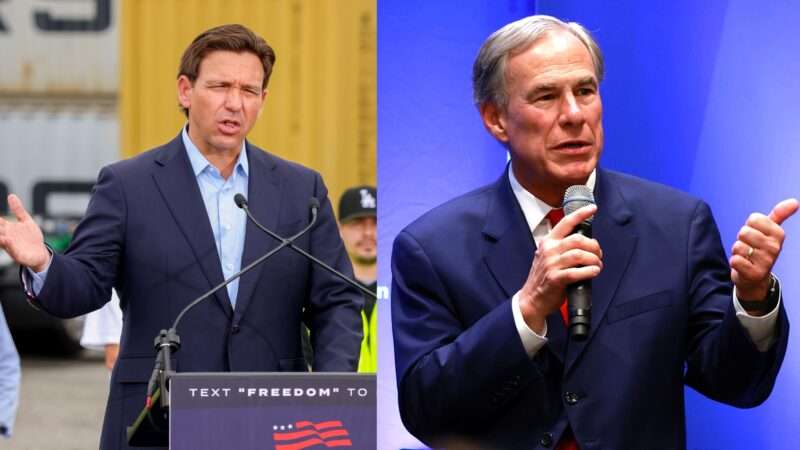
Social media companies argue that their content moderation decisions are a form of editorial discretion protected by the First Amendment. Conservative critics of those companies reject that argument, even as they complain that the platforms' decisions reflect a progressive agenda.
That contradiction is at the heart of two cases that the Supreme Court recently agreed to hear, which involve constitutional challenges to state laws that aim to correct the bias that Republicans perceive. Although supporters of those laws claim they are defending freedom of speech, that argument hinges on a dangerous conflation of state and private action.
The 2021 Florida law at issue in Moody v. NetChoice requires social media platforms to host speech by any "candidate for office," even when it violates their content rules. The law also says platforms may not limit the visibility of material "by or about" a political candidate and may not "censor, deplatform, or shadow ban a journalistic enterprise based on the content of its publication or broadcast."
The law does not cover relatively small, right-leaning platforms such as Gab, Parler, Rumble, and Truth Social. It applies only to the largest platforms, such as Twitter (now X), Facebook, and YouTube, which Republicans have long accused of discriminating against conservative speech.
Florida politicians made it clear that they were trying to address that perceived imbalance. The bill's legislative findings, which complain that Facebook et al. have "unfairly censored, shadow banned, deplatformed, and applied post-prioritization algorithms," assert that the state has a "substantial interest in protecting its residents from inconsistent and unfair actions" by those platforms.
"If Big Tech censors enforce rules inconsistently to discriminate in favor of the dominant Silicon Valley ideology," Gov. Ron DeSantis declared upon signing the bill in May 2021, "they will now be held accountable." Lt. Gov. Jeanette Nuñez said Florida was "taking back the virtual public square" from "big tech oligarchs" who were determined to "censor…views that run contrary to their radical leftist narrative."
Four months later, Texas Gov. Greg Abbott signed the law at issue in NetChoice v. Paxton, which says social media platforms may not "censor" speech based on "viewpoint" and defines censorship to include not just deletion but also any steps that make user-posted content less visible, accessible, or lucrative. Like Florida's statute, the Texas law is limited to the largest platforms, which Abbott said were trying to "silence conservative viewpoints and ideas," adding, "It is now law that conservative viewpoints in Texas cannot be banned on social media."
In May 2022, a panel of the U.S. Court of Appeals for the 11th Circuit unanimously ruled that the major provisions of Florida's law probably violated the right to exercise editorial judgment, which the Supreme Court has recognized in diverse cases involving a Miami newspaper, an electric utility's newsletter, and a private organization's St. Patrick's Day parade. The 11th Circuit noted that "private actors have a First Amendment right to be 'unfair'—which is to say, a right to have and express their own points of view."
A divided panel of the U.S. Court of Appeals for the 5th Circuit rejected that conclusion when it considered the Texas social media law later that year. Because they rely heavily on algorithms, do not review content before publication, and take action against only a tiny percentage of messages, Judge Andrew Oldham said in the majority opinion, Facebook et al. "are nothing like" a newspaper.
Writing in dissent, Judge Leslie Southwick objected to that characterization. While "none of the precedents fit seamlessly," Southwick said, a social media platform's right to curate content is analogous to "the right of newspapers to control what they do and do not print."
In arguing that the 5th Circuit got it right, DeSantis, Abbott, and like-minded politicians assert that Facebook et al. are pursuing a left-wing agenda while simultaneously denying that the First Amendment protects their right to do so. The Supreme Court should not let them have it both ways.
© Copyright 2023 by Creators Syndicate Inc.
The post Defenders of the Florida and Texas Social Media Laws Contradict Themselves appeared first on Reason.com.







